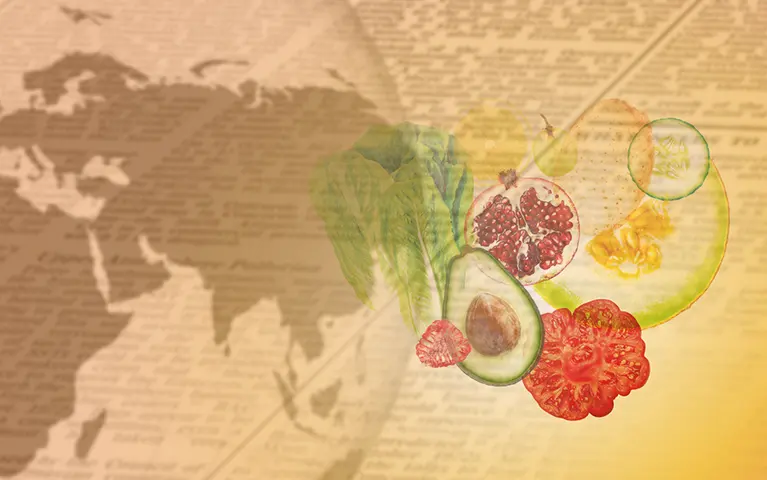

Phytosanitary certificate: practical guide for farmers
Plant protection products help increase agricultural yields and ensure good food quality. They are chemical mixtures containing one or more active substances and other ingredients designed to protect plants and plant products from harmful organisms. However, their use can also have adverse effects on plant production and pose risks to humans, animals and the environment. In this article, we analyse the role of plant protection products, their use, the requirements for obtaining a certificate of use, the regulations in force, their processing and the benefits of their application.
What is a phytosanitary certificate?
A phytosanitary certificate is a document that guarantees that plant products meet the necessary health conditions for export and ensures that they are free from pests and diseases that could affect plant health in other countries.
Objectives of the phytosanitary certificate
The phytosanitary certificate allows the sale of products that must be previously authorised and compulsorily registered in the Official Register of Phytosanitary Products. The State applies the necessary mechanisms to ensure that only those phytosanitary products that are useful and effective in combating pests, but do not entail other collateral risks, can be marketed.
Importance for international trade in agricultural products
The phytosanitary certificate is essential for exporting products. Beforehand, the operator must find out whether or not there is a bilateral protocol or agreement by consulting with the regional offices of the Ministry of Agriculture, Fisheries and Food abroad. To see the directory, click here.
They can also contact the Border Control Points to find out if there is a bilateral protocol or agreement. In any case, it is the exporter's responsibility to be aware of the phytosanitary requirements at the destination and to justify them by providing a copy of the phytosanitary regulations of the destination country or the prior import permit or licence.
Who needs a phytosanitary certificate?
The phytosanitary certificate is mandatory for exporters of plant products—such as plants, seeds, and fruits, among others—to countries that require it for importation. The certificate ensures that the products are free from pests and diseases that could affect agricultural production and plant health in the importing country. Each country establishes its own phytosanitary standards and requirements, so it is important to know the requirements of the destination country before exporting plant products.
Specific cases where it is mandatory
It is mandatory for the export of plant products to countries that require it and also for the import of plant products into the European Union. It is essential to ensure that products comply with the health and legal requirements of the importing country.
When exporting, if the destination country requires it, it is mandatory for the export of plant products such as plants, bulbs, seeds, fruits, vegetables or flowers. For imports into the EU, it is required for the marketing of all plants and other objects within the territory of the European Union, unless they are exempt. It is also required for high-risk products (subcategories A and B).
Steps to obtain a phytosanitary certificate
Firstly, the specific requirements of the importing country for the product to be exported must be identified. Subsequently, an inspection of that product must be requested from the phytosanitary authority of the country of origin, and an application must be submitted with detailed information about the shipment.
Prerequisites
Authorities are increasingly regulating the export of plant products to prevent irregularities in their transport, and to this end, the requirements established by the phytosanitary regulations in force at each destination outside the European Union are respected. To export plant products, a phytosanitary certificate is required if demanded by the destination country, and to certify that these products comply with the established phytosanitary requirements and are legal.
Required documentation
An application must be submitted to the competent authority requesting the issuance of the phytosanitary certificate with detailed information on the product, country of destination, and proof that the plant product complies with the requirements of the importing country, which may include treatment certificates, inspections, or laboratory analysis results. Other documents may also be required, such as commercial invoices, customs declarations, or information on the origin and transport of the product, together with proof of payment and other additional documents.
Inspection and verification process
The Ministry of Agriculture, Fisheries and Food (MAPA) regulates mandatory inspections that evaluate application equipment to ensure proper functioning and compliance with safety and quality standards in the inspection and verification process for plant protection products.
Applicable rules and regulations
The State applies the necessary mechanisms to ensure that only those plant protection products that are useful and effective in combating pests, but do not pose other collateral risks, can be marketed. In order for a product to be marketed, it must first be authorised and registered in the Official Register of Plant Protection Products.
National phytosanitary requirements
The introduction of vegetables and vegetable products into European Union Member States is regulated by Directive 2000/29/EC, which is covered by Royal Decree 58/2005 through a standardised model authorised by the National Plant Protection Organisation (NPPO) of each state. The regulations applicable to imports can be consulted here.
International regulations and trade agreements
If there is an export protocol for a product between a specific country and Spain, it would already have been agreed upon. The export conditions can be consulted at the Subdirectorate General for Health Agreements and Border Control. If there is no export protocol, you must contact the relevant department in the destination country to find out the phytosanitary requirements of that country. In this case, it is advisable to contact the customer in the destination country to inform them of the phytosanitary requirements for export.
Legislation
Law 43/2002 on Plant Health
Directive 2009/128/EC on the Sustainable Use of Pesticides
Royal Decree 1702/2011 of 18 November on periodic inspections of equipment used to apply plant protection products
Royal Decree 1311/2012, on the sustainable use of plant protection products
Order AAA/1053/2012, National Reference Laboratory
Common mistakes when applying for a phytosanitary certificate
The most common errors when applying for a phytosanitary certificate are usually related to the information provided in the application, such as incomplete or incorrect data, or failure to comply with the application process requirements. Errors may also occur in product information, such as incorrect registration numbers or data inconsistencies.
Lack of documentation
A very common error is related to a lack of documentation, such as not providing mandatory information or missing product information: registration number, trade name, batch number, etc. Problems also commonly arise when designating the representative or the entity being represented, and errors occur when consulting the Commercial Registry data.
Errors in product declarations
To avoid this error, you must provide the required information, correctly state the registration number, and provide complete information. Avoid using an invalid or outdated phytosanitary product registration number in the database, and review the information provided in the application and product information, such as quantities, dates, or codes.
Benefits of having a phytosanitary certificate
The phytosanitary certificate provides benefits for both agriculture and international trade, as it helps prevent the spread of pests and diseases.
Access to new international markets
This certificate facilitates international trade by ensuring that plant products comply with the health requirements of importing countries.
Reducing the risk of rejection at customs
The phytosanitary certificate helps to significantly reduce the risk of a product being rejected at customs. To do so, it must be valid, issued within the required time frame, and correspond to the products being exported. High- and medium-risk products (A and B) must have an export phytosanitary certificate from the country of origin, while low-risk products do not require one.
Promotion of good agricultural practices
Possession of the certificate encourages the use of agricultural practices that respect human health and care for the environment by protecting biodiversity and industries in the sector.
Frequently asked questions about the phytosanitary certificate
The Ministry of Agriculture, Fisheries and Food (MAPA) has produced a document containing frequently asked questions and answers on the registration of plant protection products, their information and labelling, sustainable use and their use in areas other than agricultural production.
How long is it valid for?
A phytosanitary certificate is usually valid for 60 days from the date of issue, although this may vary depending on the exporting or importing country.
What are the associated costs?
Although the cost of a phytosanitary certificate in Spain varies depending on the type and the process of obtaining it, obtaining one for the export of vegetables, products and by-products costs less than €30. Training courses to obtain the phytosanitary card range from €55 to €150.
For more information on obtaining the certificate, please click here.






